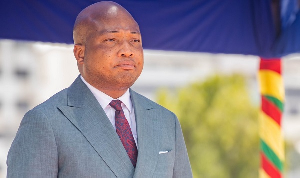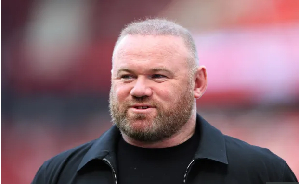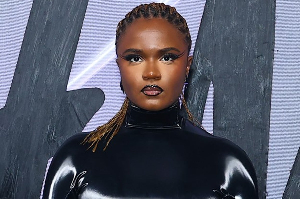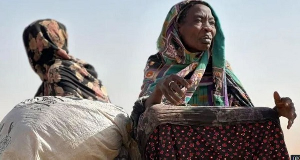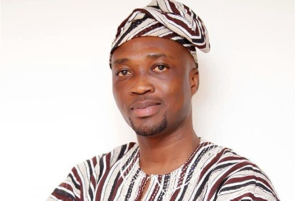In the run-up to and during Ghana?s golden jubilee celebrations, so much has been said about leadership legacy in this country and how various leaders and forms of leadership, legitimate and illegitimate, have contributed to the present state of the country.
A typically unexpected comment has been about the actual impact of Osagyefo Dr. Kwame Nkrumah's agitation for ?Independence now?, which led to our independence on March 6, 1957. Some have dared to say that Osagyefo?s insistence on independence now was a rush and was to blame largely for lots of the woes of the country, in that were not prepared for independence the.
Indeed in his life time he was called a dictator even though his government was an elected one. But like most African leaders in the past and now, Osagyefo was known for subtly running a government of exclusivity, as a result of which persons who have alternative opinions about his actions became victims his infamous Preventive Detention Act (PDA).
After him this country has witnessed several de facto governments who came to power through the barrel of the gun and a few democratically elected governments, all of which made their own contributions to the present state of the country. It is instructive to note that quite a number of African countries identify with the kind of checkered leadership history that Ghana have had over the past 50 years of our independence.
Writing about "Leadership in African States", may be simple and complex at the same time. Simple because it is not a secret what Africans say about the performance of their leaders "our leaders have failed us" to put it mildly. But on the other hand it is a complex subject to deal with because it demands an attempt to look at the reasons for the failures and probably hazard some suggestions for the better.
I would not attempt to do neither but rather to make a few suggestions for better leadership in Ghana and by extension Africa based on very profound models puts forward by the world renowned British leadership guru, Professor John Adair.
I do not intend to do PR or marketing for Adair?s ideas and writings on leadership, but just to focus on what I thought was the most profound suggestion he made on his recent and maiden visit to Ghana to hold a series of leadership seminars with corporate, political and other categories of leaders in Ghana under the auspices of the British Council in Accra.
In making his suggestion about leadership in Ghana and in Africa for that matter, Prof. Adair asked "why can't the government of Ghana bring together all the religious, traditional, civil society, students, corporate, media and others leaders in the country to put together a comprehensive national development plan for the next 50 years of Ghana's life?".
He further queried "why must it always be the a few political leaders and their close political allies in society who plan the policies and development agenda and set the targets for the nation " Ghana can make a change this time round and make use of the rich religious, traditional, corporate and other leaders from the scratch in the planning for the development of this country over the second 50 years.?
John Adair made this profound suggestion in his usually humble and relaxed posture, but it struck me and others in the audience like thunder, and you could tell how that suggestion went down with us when it came to question and answer time.
But yes, Prof. Adair is right. For the past 50 years, leadership in Ghana and in most African countries has been nothing but political; The politicians alone initiate the policies, they either draw up the development plans or ensure that their carefully selected technocrats draw up plans to suit their purposes. Politicians alone approve of projects before they are carried out, they alone approve of funds before they are released for projects. Whatever national leadership role you think of in African is played by politicians, competent and incompetent.
In other words, the policies, development plans, the projects and what-have-you are all owned by the politicians. No wonder in Africa, industry, civil society and all other groups apart from politicians always cry of mismanagement of the economy in such a way that is affecting the progress of industry and the living standards of the people and yet it is no secret that politicians and their families are largely well off.
Adair observed that there seemed to be a 'barrier', a dis-link between political leadership and all other forms of leadership in Africa. It seems political leaders see themselves as some special kind of people whose position makes the destiny of this country their exclusive preserve. On that score they sideline all the other leaders and virtually make all the policies alone.
Adair pointed out that the best form of leadership is the one that is task, team and individual needs oriented. He emphasized that there is a creeping leadership revolution in the world today that focuses more on team achievement rather than individual achievement and African politicians seem to be missing out on that big time.
Meanwhile in recent times it has been abundantly obvious that religious (Christian in particular), corporate and civil society and traditional leadership in Ghana in particular have so much up their sleeves to help move this nation forward. But instead of integrating the ideas of these leaders at the policy formulation level, politicians choose to look at these groups of leaders as a competition and mere critics and therefore ward them off with unnecessary argument and gimmicks.
Talk of Rev. Dr. Mensa Otabil, Otumfuor Osei Tutu II, Osagyefo Amoatia Ofori Panin II, Prof. Emmanuel Boadi, William Ofori Atta and other leaders who have proved their competence in offering policy and leadership directions for this country beyond measure, but have been left on the peripherals because they are not politicians.
But Adair is proposing a kind of leadership that I call INTEGRATED LEADERSHIP, where all categories of leadership, religious, traditional, civil society and others are made to own the national policies and drive the national development agenda like their own because they are actively involved in the formulation of policies and development plans, especially for the next 50 years.
That kind of integrate leadership is what has made a small country like Singapore what it is now. A small country; but by all standards rubs shoulders with the G8 countries. The political leadership of Singapore saw the need to bring all hands on deck when that country was very poor.
With that kind of thinking, professionals of the top-most qualification, no matter their supposed political ideology were placed in charge of sectors of their specialty just to ensure that the optimum result was achieved in all sectors of the economy and that worked and continues to work effectively. The fallout effect was that national policies and development plans became something that belonged to all and not just one political party seeking to appropriate the success of the economy to themselves only and nobody else. The result was that every citizen of that country felt like they were part owner of the policies and development agenda and therefore broke their backs to make it succeed.
We can't say the same for Ghana and for many African countries. Leadership in Africa is largely political. In Ghana for instance you would often here one politician or another claiming that his or her party provided roads, water, schools and other facilities and utilities, even in cases where clear evidence has shown that politicians did not even have a hand in the provision of such.
What we have lived with in Ghana mostly over the past 50 years has been nothing but politicians who prefer to be bosses and not leaders. But like Prof. Adair suggested, we can make a change for the next 50 years.
We are just at the threshold of the second 50 years of our country's history. There is no better time to give heed to this valuable counsel than this time. Let's put together all the leaders in the country, political, religious, traditional, corporate, civil society, students, media and others to put a comprehensive development plan together for the next 50 years.
Long live Ghana, Long live integrated leadership.



